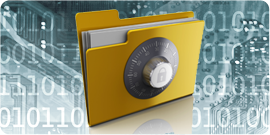Owe Taxes and Can’t Pay?
Article Highlights:
- If you can’t pay
- Loans
- Credit card payments
- IRS Installment agreement
- Retirement funds
Are you one of the unfortunate Americans that end up owing and cannot pay your tax liability?
The IRS encourages you to pay the full amount of your tax liability on time by imposing significant penalties and interest on late payments if you don’t. So if you are unable to pay the tax you owe, it is generally in your best interest to make other arrangements to obtain the funds for paying your taxes rather than be subjected to the government’s penalties and interest. Here are a few options to consider.
- Family Loan – Obtaining a loan from a relative or friend may be the best bet because this type of loan is generally the least costly in terms of interest.
- Credit Card – Another option is to pay by credit card with one of the service providers that work with the IRS. However, since the IRS will not pay the credit card discount fee, you will have to pay it and pay the higher credit card interest rates.
- Installment Agreement – If you owe the IRS $50,000 or less, you may qualify for a streamlined installment agreement where you can make monthly payments for up to six years. You will still be subject to the late payment penalty, but it will be reduced by half. Interest will also be charged at the current rate, and there is a user fee to set up the payment plan. In making the agreement, a taxpayer agrees to keep all future years’ tax obligations current. If the taxpayer does not make payments on time or has an outstanding past due amount in a future year, they will be in default of their agreement and the IRS has the option of taking enforcement actions to collect the entire amount owed. Taxpayers seeking installment agreements exceeding $50,000 will need to validate their financial condition and need for an installment agreement by providing the IRS with a Collection Information Statement (financial statements). Taxpayers may also pay down their balance due to $50,000 or less to take advantage of the streamlined option.
- Tap a Retirement Account – This is possibly the worst option for obtaining funds to pay your taxes because you are jeopardizing your retirement and the distributions are generally taxable at your highest bracket, which adds more taxes to your existing problem. In addition, if you are under age 59½, the withdrawal is also subject to a 10% early withdrawal penalty that compounds the problem even further.
Whatever you decide, don’t just ignore your tax liability because that is the worst thing you can do. Please call this office for assistance.




